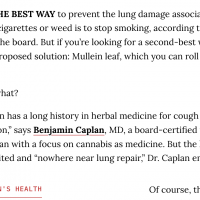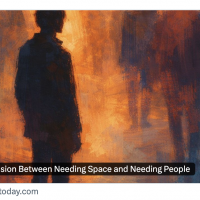RFK CONFIRMATION HEARINGS: Lawmakers Prioritize Political Grandstanding Over the Health of Millions of Seniors — It’s Time to Disrupt That.

By Dr. Benjamin Caplan, MD
Nearly seven hours.
That’s how long RFK Jr. testified before the Senate — while lawmakers focused on political stunts, grandstanding, and chasing viral soundbites instead of real issues.
But in nearly seven hours of grandstanding and political theater, what we learned is that Washington remains fecklessly tethered to big pharma’s agenda — an agenda that continues to wage a relentless, decades-long war on America’s seniors.
RFK Jr. has now completed the entire confirmation process and is officially confirmed. Yet, despite his clear qualifications and the significance of his role, lawmakers chose to prioritize performative outrage over substantive discussion.
As health care costs for seniors surge, and as half of Medicare enrollees are taking four or more prescription drugs daily, not a single senator throughout the process asked a question about medical cannabis — a treatment being increasingly embraced by older adults, which has the potential to revolutionize the 65+ health care landscape. Study after study affirms medical cannabis’s potential to cut prescription drug use, reduce a dangerous and growing reliance on opioids and benzodiazepines, save tens of billions of dollars a year, and actually improve seniors’ lives.
Medical cannabis isn’t controversial. It’s not radical. It’s a proven, common-sense solution that saves lives, cuts healthcare costs, and gives seniors real choices.
So why won’t Washington even discuss it?
Thirty percent of people over the age of 65 are taking five or more pharmaceuticals daily, perpetuating a dangerous, growing dependency on opioids and benzodiazepines.
For too many seniors, these drugs are doing more harm than good.
Every year, benzodiazepine-related cognitive impairment leads to 200,000 fall-related hospitalizations and 10,000 preventable deaths. These medications, prescribed for anxiety and sleep disorders, also contribute to 3,000 deaths annually in seniors when combined with opioids — a drug which on its own claims the lives of nearly 12,000 seniors on Medicare annually from overdoses.
Meanwhile, research has shown that medical cannabis can replace or reduce the need for these very medications. It helps with chronic pain, sleep issues, anxiety, and inflammation — without the risk of overdose or dangerous withdrawal.
Recent research from the Dana Farber Cancer Institute suggests that CBD is a safer, more effective alternative to benzodiazepines, adding to a growing body of research reinforcing CBD’s therapeutic potential. A 2022 study found marijuana therapy is associated with objectively fewer opioid and benzo prescriptions — with 73% of participants either ceasing or decreasing opioid consumption, and 31% discontinuing benzos altogether. The study found that pain was significantly reduced at three, six, and twelve months after the initiation of marijuana therapy.
The impact of medical cannabis doesn’t stop there. It’s also a more cost-effective alternative that has the potential to save the health care system billions.
Medicare spends $12.3 billion annually on opioids, benzodiazepines, and related healthcare costs — like addiction treatment, hospitalizations for falls, and overdoses. And those costs continue to climb.
In contrast, a PwC study estimates that the integration of a medical cannabis program designed to serve the 65+ population has the potential to drive benefits for the health of seniors and could save $64 billion per year to the U.S. healthcare system. Offering these alternative treatment options to commonly prescribed drugs not only saves the healthcare system billions, but it can also ease the financial burden saddling millions of older Americans.
The data couldn’t be more clear, yet nothing has changed. Why?
Look no further than this week’s confirmation hearings — where what Congress didn’t say spoke louder than anything they did.
The subtext of this week’s Senate-based theatrics made clear that Washington is as committed as ever to forcing taxpayers to bankroll overpriced prescription drugs while ignoring a safer, cheaper alternative. Cannabis threatens the profits of big pharma. It’s a natural alternative that can’t be patented, manipulated, or price-gouged the way prescription drugs can.
Big Pharma spends millions lobbying to keep cannabis illegal — because keeping seniors hooked on prescription drugs is good for their bottom line.
What seniors need now isn’t more talk. They need disruptive leadership—and President Trump is the leader who can get it done.
President Trump’s brand of disruptive leadership can finally do away with Washington’s antics and spearhead a medical cannabis effort that fundamentally improves the current 65+ health care system. We must establish a value-based, patient-centered cannabis demonstration model that integrates medical cannabis into mainstream healthcare for the 65+ population. What this means is integrating cannabis-based therapy into Medicare Advantage and private insurance plans, utilizing telemedicine and senior care networks to deliver a healthcare experience that goes beyond a dispensary visit, and ensuring millions of seniors have safe, legal, and insured access to cannabis-based therapies. This isn’t hypothetical, it’s a model that’s ready to be put into motion immediately.
Millions of seniors want access to medical cannabis—not because of politics, but because it works. Polls show that nearly 70% of U.S. adults support full legalization, and even more support medical use.
The science is clear. The economics make sense. Seniors are demanding it. So why is Washington still standing in the way? How many more lives—and tax dollars—will be wasted before someone finally acts?
This week’s confirmation hearings were proof that Washington is too scared to challenge the status quo. Lawmakers would prefer to keep seniors shackled to prescription drugs instead of offering them real choices and health care freedom.
It’s time to rethink the senior health care landscape, and champion a system built to serve seniors — not to serve big pharma.
Dr. Benjamin Caplan, MD — a board-certified Family Medicine physician and globally recognized leader in cannabis medicine — is the Chief Medical Officer for The Commonwealth Project, an organization dedicated to prioritizing the 65+ population by integrating medical cannabis into mainstream senior healthcare.





